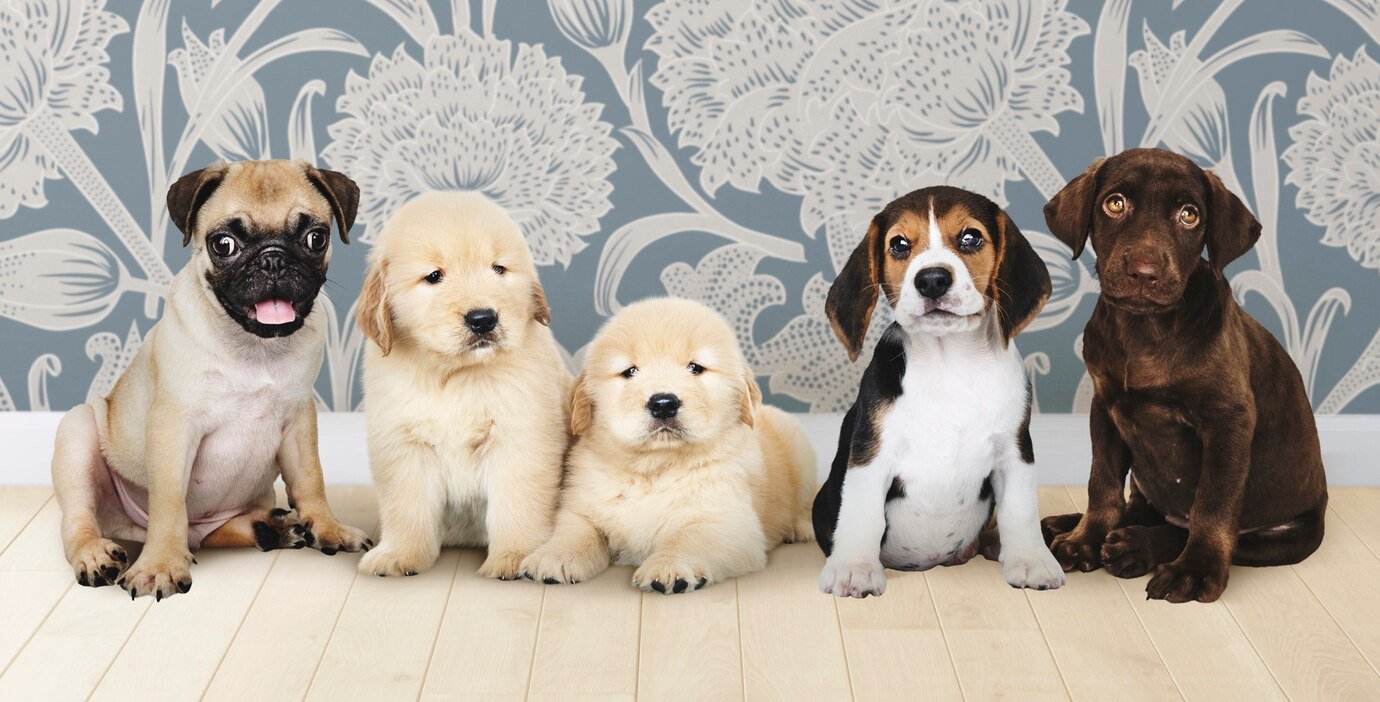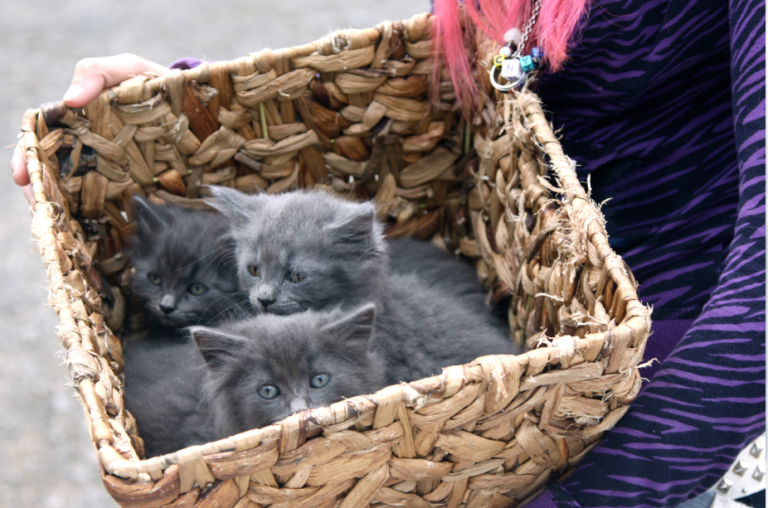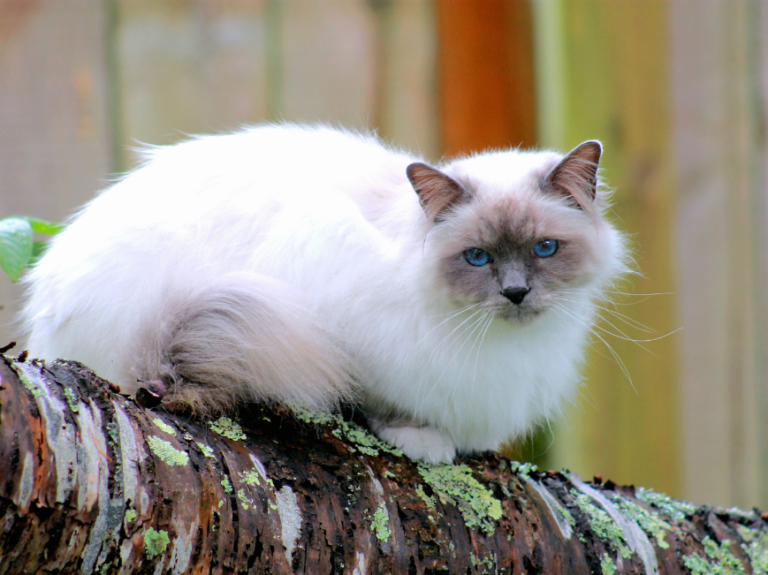Table of Contents
1. Why Choose a Small Dog?
Choosing a small dog has many advantages, from their adaptability to different living spaces to their easy-to-manage size. Small dogs are often more portable than their larger counterparts, making them perfect for pet owners who love to travel or live in urban settings where space is limited. Additionally, they generally require less exercise, making them suitable for individuals with a more sedentary lifestyle.
Moreover, small dog breeds tend to be less intimidating to children and other pets, making them great additions to families. Their lower food intake and grooming costs can also be a financial benefit. However, it’s important to consider the breed’s temperament and energy level to ensure a good match with your lifestyle.
2. Popular Small Dog Breeds
Among the many small dog breeds, some stand out for their unique characteristics, popularity, and suitability for various households. Let’s dive into some of the most beloved small dog breeds that have won the hearts of many.
2.1. Chihuahua
The Chihuahua, famous for its diminutive stature and outsized character,, is a breed that commands attention wherever it goes. Originating from Mexico, Chihuahuas are one of the smallest dog breeds in the world. Despite their small stature, they possess a bold and confident demeanor that often surprises people.
These dogs are fiercely loyal to their owners and can be quite protective. Their temperament can vary from being affectionate lap dogs to spirited and feisty companions. Due to their small size, they are ideal for apartment living, but they still need regular mental and physical stimulation to stay happy and healthy. Owners should also be mindful of their fragility and ensure they are handled gently, especially around young children.
2.2. French Bulldog
With its bat-like ears and lovable demeanor, the French Bulldog has become a favorite among small dog enthusiasts. This breed is known for its affectionate nature and adaptability to various living environments. Originally bred in England as a miniature version of the Bulldog, the French Bulldog quickly gained popularity in France and across the world.
French Bulldogs are excellent companions, especially for people living in cities or apartments. They have a calm disposition but also enjoy playtime. These dogs are known for their strong bonds with their owners and are often described as “clingy” due to their tendency to stay close. Their short coat requires minimal grooming, but potential owners should be aware of their susceptibility to respiratory issues due to their brachycephalic (flat-faced) structure.
2.3. Pomeranian
The Pomeranian, with its fluffy coat and lively spirit, is a small dog breed that brings joy and energy into any home. This breed hails from the Pomerania region in present-day Germany and Poland, and it was once much larger. Through selective breeding, the Pomeranian was reduced to its current small stature.
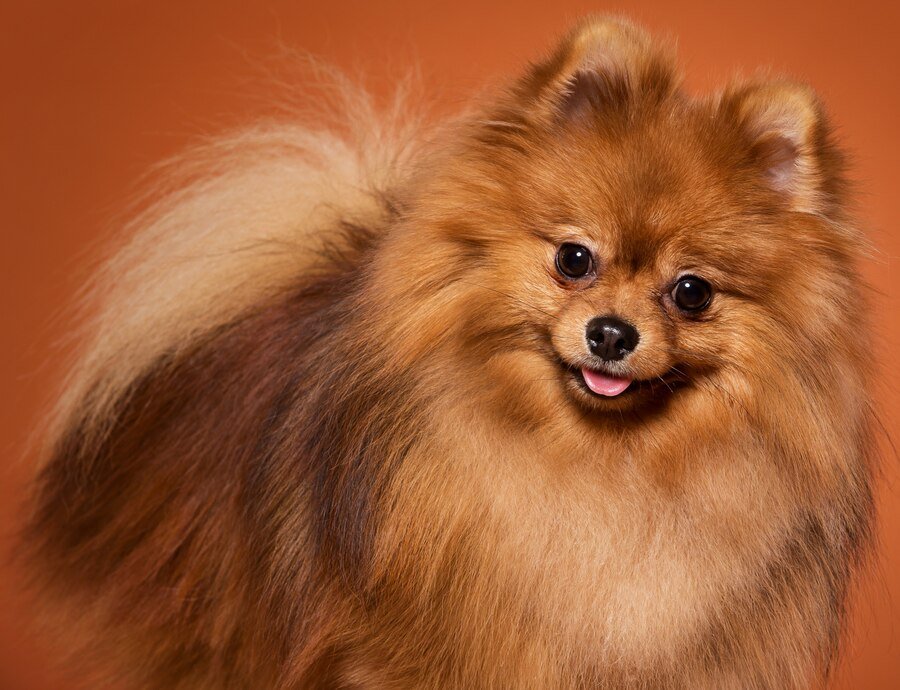
Pomeranians are known for their outgoing and vivacious personalities. They are intelligent and can be trained easily, though they can also be a bit stubborn at times. Despite their small size, they have a strong bark, making them excellent watchdogs. They require regular grooming due to their thick double coat, and owners should be prepared for daily brushing to prevent matting.
2.4. Dachshund
The Dachshund, with its distinctive long body and spirited nature, is a small dog breed that leaves a big impression. Originally bred in Germany for hunting small game, particularly badgers, Dachshunds are courageous and tenacious dogs.
They come in three coat varieties: smooth, longhaired, and wirehaired, each with its own grooming needs. Dachshunds are known for their playful and curious nature, but they can also be independent and stubborn, which can make training a bit challenging. With patience and consistency, they can become well-mannered companions. Their long spine makes them prone to back issues, so it’s essential to prevent them from jumping from high places or climbing stairs frequently.
2.5. Yorkshire Terrier
The Yorkshire Terrier, or Yorkie, is a breed that combines elegance with a bold and playful personality. Originating from England, Yorkies were initially used to catch rats in clothing mills. Over time, they became popular as companion dogs due to their charming looks and spirited nature.
Yorkies are known for their silky, hypoallergenic coats, which require regular grooming to maintain their beauty. They are lively, affectionate, and sometimes a bit bossy, often forgetting their small size. Despite their delicate appearance, they are quite sturdy and enjoy playing. Yorkies are best suited for owners who can dedicate time to grooming and enjoy an active and engaging relationship with their pets.
3. Lesser-Known Small Dog Breeds
Beyond the more popular choices, several lesser-known small dog breeds deserve attention for their distinct qualities. These breeds may not be as famous, but they have unique traits that make them excellent companions.
3.1. Affenpinscher
Often referred to as the “monkey dog,” the Affenpinscher is a small breed with a quirky and entertaining personality. This breed, originating from Germany, is one of the oldest toy breeds and was originally used to rid homes and stables of rats and mice.
Affenpinschers are known for their playful, curious, and sometimes mischievous nature. They are intelligent and quick learners, making them relatively easy to train, though they do have a strong-willed side. Their wiry coat requires regular grooming to keep it looking tidy. Affenpinschers are also known for their loyalty and tend to form strong bonds with their owners, often following them from room to room.
3.2. Brussels Griffon
The Brussels Griffon, with its expressive face and affectionate nature, is a small breed that quickly wins over hearts. Originating in Belgium, this breed was initially bred to hunt vermin but has since become a beloved companion dog.
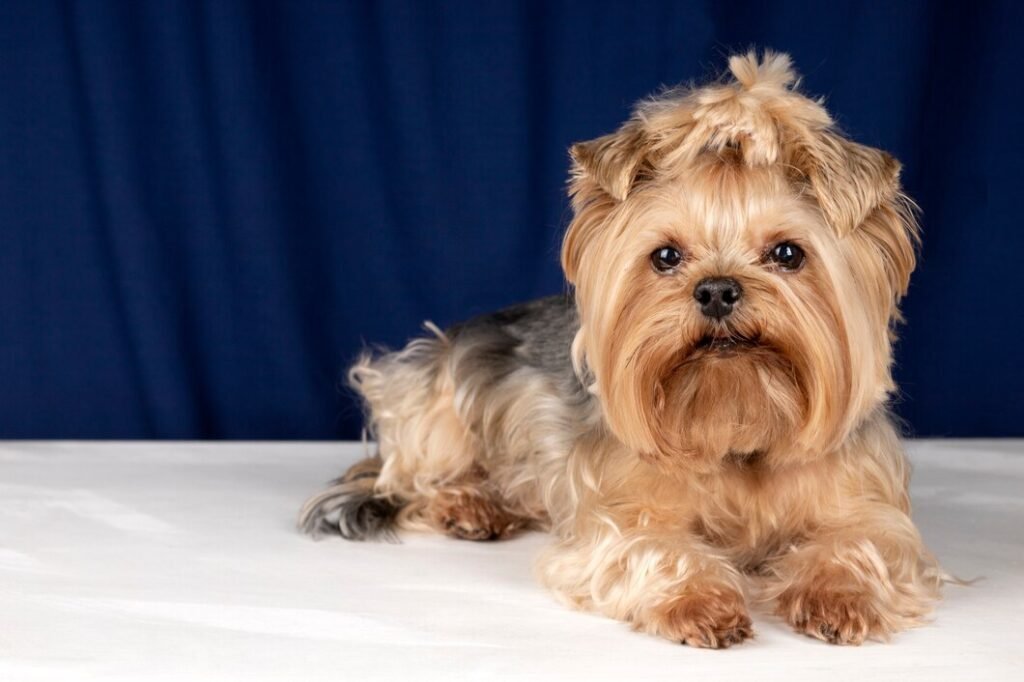
Brussels Griffons are known for their human-like expressions and charming personalities. They are affectionate, sometimes to the point of being overly attached to their owners, and they thrive on companionship. These dogs are generally good with other pets and children, though they prefer to be the center of attention. They come in two coat types: rough and smooth, each with different grooming needs. To maintain their happiness and good behavior, consistent physical activity and mental challenges are crucial.
3.3. Cavalier King Charles Spaniel
The Cavalier King Charles Spaniel combines the elegance of a toy breed with the loving nature of a companion dog. This breed has a rich history, being a favorite among royalty in England. It is named after King Charles II, who was particularly fond of the breed.
Cavaliers are known for their gentle and affectionate demeanor, making them excellent family pets. They are friendly and compatible with children, other dogs, and even cats. Their coat is silky and requires regular grooming to prevent tangles and mats. Cavaliers are relatively active and enjoy daily walks and playtime, making them suitable for both active owners and those who prefer a more relaxed lifestyle.
4. Care Tips for Small Dog Breeds
Owning a small dog breed comes with its own set of care requirements, from grooming to exercise. Understanding and addressing these needs will help ensure your small dog stays healthy, happy, and well-adjusted. Below are some essential care tips tailored specifically for small dog breeds.

Grooming
Regular Brushing: Many small dog breeds, especially those with longer coats like Yorkshire Terriers or Pomeranians, require frequent brushing to prevent matting and tangles. Daily brushing not only keeps their coat looking neat but also distributes natural oils, promoting a healthy and shiny coat. Even short-haired breeds, like the French Bulldog, benefit from weekly brushing to remove loose hair and keep their skin healthy.
Bathing: Small dogs should be bathed regularly, typically every The duration varies from four to six weeks, influenced by their coat type and lifestyle. Over-bathing can strip the coat of essential oils, leading to dry skin, so it’s important to use a dog-specific shampoo and conditioner that is gentle on their skin. In between baths, using a dry shampoo or a damp cloth can help keep your dog fresh and clean.
Nail Trimming: Small dogs often have delicate nails that can grow quickly. Regular nail trimming is crucial to prevent overgrowth, which can lead to discomfort or difficulty walking. Nails are best trimmed every 3 to 4 weeks. If you’re not comfortable trimming them yourself, a professional groomer or veterinarian can help.
Dental Care: Dental health is particularly important for small dog breeds, as they are more prone to dental issues like plaque buildup, tartar, and gum disease. Daily brushing of your dog’s teeth with dog-specific toothpaste is the best way to prevent dental problems. Additionally, offering dental chews and ensuring regular veterinary dental check-ups will help maintain their oral health.
Ear Cleaning: Small dogs, especially those with floppy ears like Cavalier King Charles Spaniels, are prone to ear infections. Regularly check and clean your dog’s ears to remove wax buildup and debris. Use a veterinarian-recommended ear cleaner and cotton balls to gently clean the outer ear, avoiding inserting anything deep into the ear canal.
Exercise and Mental Stimulation
Physical Activity: While small dogs generally require less exercise than larger breeds, they still need regular physical activity to stay healthy and avoid obesity. Daily walks are essential for most small breeds, providing not only physical exercise but also mental stimulation as they explore their surroundings. Depending on the breed, 20 to 30 minutes of walking per day is usually sufficient, though more active breeds like the Dachshund may require additional playtime or more extended walks.
Playtime: Incorporating playtime into your small dog’s daily routine is crucial for their mental and physical well-being. Interactive toys, fetch games, and agility exercises can help keep them engaged and active. For small dogs with a strong prey drive, like the Affenpinscher, toys that mimic chasing or hunting can provide excellent mental stimulation.
Training and Enrichment: Training sessions not only teach your dog good manners but also offer mental stimulation that can prevent boredom-related behaviors like chewing or barking. Small dogs often enjoy learning new tricks and commands, which can be done in short, fun sessions. Puzzle toys, scent games, and obedience training are great ways to keep your dog’s mind sharp.
Nutrition
Balanced Diet: A balanced diet tailored to the specific needs of small dog breeds is vital for their health. Small dogs have fast metabolisms and often require a diet that is higher in calories per pound of body weight compared to larger dogs. Choose high-quality dog food formulated for small breeds, which usually contains the appropriate balance of proteins, fats, and carbohydrates, along with essential vitamins and minerals.
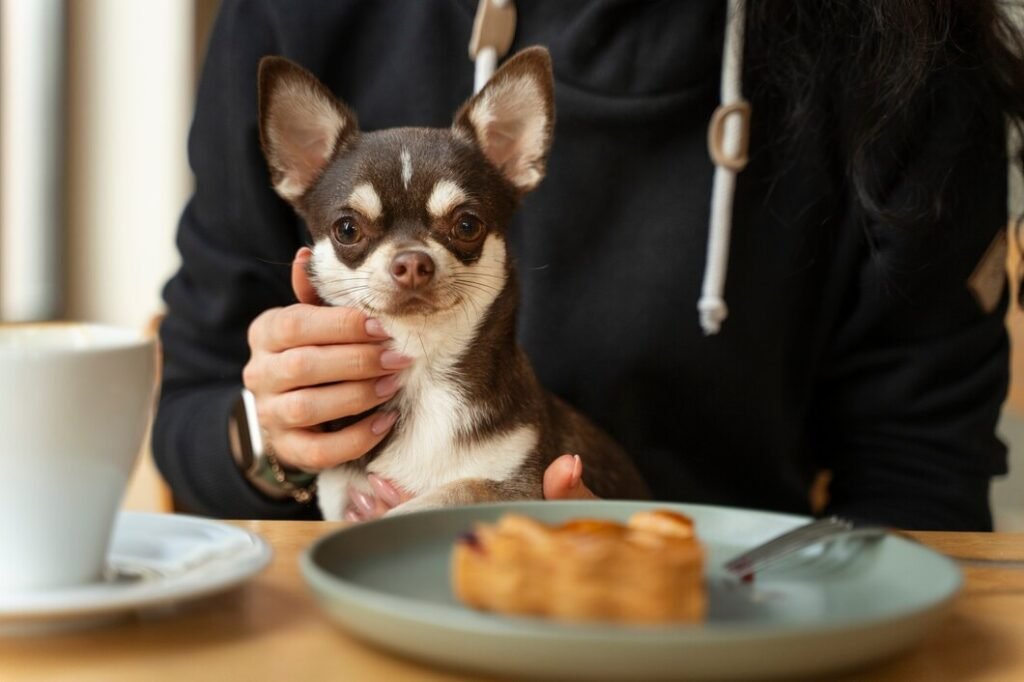
Portion Control: Small dogs are Susceptible to obesity, potentially resulting in a range of health problems such as joint issues and diabetes. It’s important to measure your dog’s food accurately and avoid overfeeding. Feeding your dog in measured portions rather than free-feeding (leaving food out all day) helps control their calorie intake and prevents weight gain.
Treats: While treats are a great way to reward your dog during training, it’s important to offer them in moderation. Opt for healthy, low-calorie treats or use small pieces of their regular kibble as rewards. Always factor in treats when considering your dog’s daily calorie intake to avoid overfeeding.
Hydration: Ensure your small dog has access to fresh water at all times. Small dogs, especially those that are active or have thick coats, can become dehydrated quickly. Keeping their water bowl clean and filled is essential to their overall health.
Health Care
Regular Vet Visits: Regular veterinary check-ups are crucial for monitoring your small dog’s health. These visits help catch potential health issues early and keep your dog’s vaccinations, flea/tick prevention, and deworming up to date. Small breeds may be prone to specific health concerns, so having a vet who understands these risks can be invaluable.
Vaccinations and Preventative Care: Keeping your dog up to date with vaccinations is essential for protecting them from common diseases. Preventative care, including flea, tick, and heartworm prevention, is also important, especially if your dog spends time outdoors. Discuss with your vet the best preventative care plan based on your dog’s lifestyle and environment.
Monitoring for Breed-Specific Issues: Small dog breeds can be prone to specific health problems, such as dental disease, patellar luxation (knee issues), or respiratory problems in brachycephalic breeds like French Bulldogs. Regular monitoring for signs of these conditions, along with proactive care, can help manage or prevent them.
Spaying/Neutering: Spaying or neutering your dog can have health benefits, such as reducing the risk of certain cancers and preventing unwanted litters. It’s important to discuss the timing of this procedure with your veterinarian to ensure the best outcome for your dog’s health.
Socialization and Behavioral Health: Socialization is crucial for small dogs, as it helps them develop confidence and reduces anxiety in new situations. Regular exposure to different people, animals, and environments in a controlled manner can prevent behavioral issues. Additionally, understanding your dog’s behavior and addressing any concerns with a professional trainer or behaviorist can contribute to a well-adjusted, happy pet.
By following these care tips, you can provide a nurturing environment for your small dog, ensuring they lead a healthy, fulfilling life. Whether it’s grooming, exercise, nutrition, or health care, meeting your small dog’s needs is key to their well-being and happiness.
5. Choosing the Right Small Dog for You
Finding the perfect small dog breed for your lifestyle involves a careful assessment of your living situation, activity level, grooming preferences, and desired temperament. Each breed has unique traits that can make them more or less suitable for different owners, so understanding these characteristics is crucial in making an informed decision

Living Space
- Chihuahua: Due to their tiny size, Chihuahuas are well-suited to apartment living. They don’t need much room to exercise and are often content with indoor play.
- French Bulldog: This breed adapts very well to smaller living spaces. Their low energy levels and preference for short walks make them excellent for urban environments.
- Yorkshire Terrier: Yorkies are also good apartment dogs, though they are more energetic and enjoy regular walks. Their small size makes them a good fit for any living space.
For those with a larger home or access to a yard, breeds that enjoy a bit more space to explore can be considered. Even with more space, these dogs still appreciate being close to their owners and will spend most of their time indoors.
- Dachshund: Although adaptable to small spaces, Dachshunds enjoy having a yard where they can dig and explore. They are known for their love of chasing scents and burrowing, making a secure outdoor space ideal.
- Pomeranian: Pomeranians are small but energetic and love having space to play. A yard allows them to burn off energy, but they are also happy with indoor games and short walks.
Energy Level
Your personal energy level and activity preferences should align with the breed you choose. Some small dogs are bundles of energy and require regular exercise and stimulation, while others are more laid-back and content with minimal activity.
- High-Energy Breeds:
- Pomeranian: This breed is lively and requires daily walks and playtime to stay happy. They enjoy interactive games and can be quite playful, making them suitable for active owners.
- Dachshund: Known for their spirited nature, Dachshunds need regular exercise to stay fit and prevent boredom. They enjoy walks, playtime, and even agility training.
- Moderate-Energy Breeds:
- Yorkshire Terrier: Yorkies are energetic but manageable. They enjoy a good walk and active play but also appreciate lounging around the house. Their energy levels are adaptable to their owner’s lifestyle.
- Cavalier King Charles Spaniel: Cavaliers are versatile in their energy needs. They are happy to join in on outdoor activities but are also content with cuddling on the couch. This makes them suitable for a range of owners, from active individuals to those who prefer a more relaxed lifestyle.
- Low-Energy Breeds:
- French Bulldog: French Bulldogs are known for their calm demeanor and low exercise needs. They are perfectly content with short daily walks and enjoy lounging around the house, making them ideal for less active owners.
- Chihuahua: While Chihuahuas have bursts of energy, they don’t require extensive exercise. Short walks and playtime indoors are usually enough to keep them satisfied.
Grooming Needs
Grooming is another important consideration when choosing a small dog breed. Some dogs require daily brushing and regular trips to the groomer, while others have low-maintenance coats that are easier to care for.
- High-Maintenance Grooming:
- Yorkshire Terrier: Yorkies have long, silky hair that requires daily brushing to prevent tangling and matting. Regular grooming appointments are also needed to keep their coats looking their best.
- Pomeranian: The Pomeranian’s thick double coat requires frequent grooming to prevent mats and tangles. They need regular brushing and occasional baths to maintain their fluffy appearance.
- Moderate-Maintenance Grooming:
- Cavalier King Charles Spaniel: Cavaliers have a medium-length coat that requires regular brushing to avoid matting, especially around the ears and tail. They also benefit from regular baths and occasional trips to the groomer.
- Dachshund: Grooming needs vary by coat type. Smooth-coated Dachshunds require minimal grooming, while longhaired and wirehaired varieties need more regular attention, including brushing and trimming.
- Low-Maintenance Grooming:
- French Bulldog: French Bulldogs have short coats that are easy to care for. Regular brushing with a soft-bristle brush will keep their coat healthy, and they don’t require frequent baths.
- Chihuahua: Chihuahuas also have low grooming needs, especially the smooth-coated variety. They shed, but regular brushing helps manage this, and their small size makes bathing and general care easy.
Temperament
The temperament of a dog breed is perhaps one of the most critical factors to consider. The right match ensures that both you and your dog enjoy a harmonious relationship.
- Affectionate and Gentle:
- Cavalier King Charles Spaniel: Cavaliers are known for their loving and gentle nature. They are incredibly affectionate and form strong bonds with their owners, making them ideal for families and individuals seeking a cuddly companion.
- Brussels Griffon: This breed is also affectionate and forms strong attachments to its owners. They enjoy being close and are known for their expressive, almost human-like emotions.
- Bold and Spirited:
- Chihuahua: Chihuahuas are bold and confident, often acting as if they are much larger than they are. They are fiercely loyal to their owners and can be protective, making them good watchdogs.
- Dachshund: With a brave and tenacious personality, Dachshunds are always ready for an adventure. They are curious and love to explore, making them excellent companions for owners who enjoy an active lifestyle.
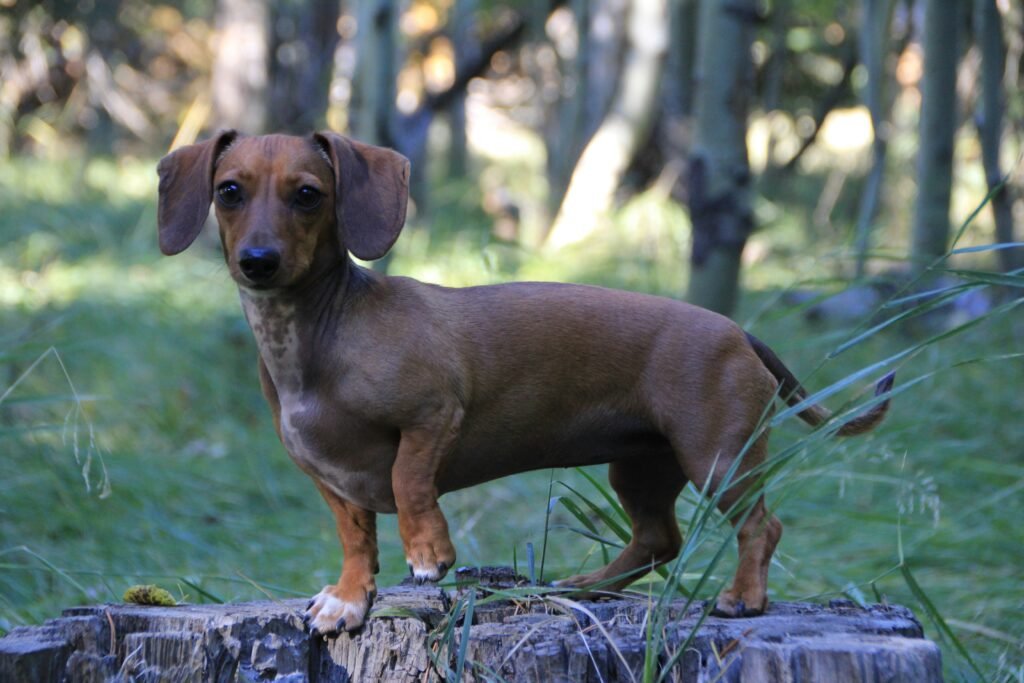
- Playful and Lively:
- Pomeranian: Pomeranians are full of energy and always ready to play. They are intelligent and enjoy learning new tricks, which makes them engaging and entertaining pets.
- Yorkshire Terrier: Yorkies have a playful nature and enjoy interacting with their owners. They are intelligent and quick learners, making them fun companions for those who like to train and play with their dogs.
- Calm and Relaxed:
- French Bulldog: Known for their calm and easy-going nature, French Bulldogs are perfect for owners who prefer a quieter lifestyle. They enjoy lounging around the house and are great for people who want a low-maintenance companion.
Other Considerations
Allergies: If you or someone in your household has allergies, you might consider a hypoallergenic breed like the Yorkshire Terrier or Poodle mix (e.g., Cavapoo). These types of breeds typically shed minimally and generate fewer allergens.
Time Commitment: Consider how much time you can dedicate to your dog. Some breeds, like the Affenpinscher or Brussels Griffon, require a lot of attention and companionship, while others, like the French Bulldog, are more independent.
Experience Level: If you are a first-time dog owner, it’s wise to choose a breed that is known for being easy to train and manage. Breeds like the Cavalier King Charles Spaniel and French Bulldog are typically more forgiving and easier to handle, while more independent and strong-willed breeds like the Dachshund might be better suited for experienced owners.
Choosing the right small dog breed involves understanding both the dog’s needs and your lifestyle. By considering factors like living space, energy level, grooming requirements, and temperament, you can find a small dog that will fit seamlessly into your life and bring you years of joy and companionship.
The Joys of Owning a Small Dog
Owning a small dog can bring immense joy, providing companionship and love in a compact and adorable package. These little dogs often have big personalities, making them delightful additions to any household. Their manageable size, adaptability, and the strong bonds they form with their owners make them ideal pets for various living situations. Whether you’re an experienced dog owner or a first-timer, small dog breeds offer a unique and rewarding pet ownership experience. With the right care and attention, these small dogs can lead long, happy, and healthy lives, bringing endless happiness to their owners.
FAQs
Q: Are small dog breeds good for families with children?
A: Many small dog breeds are excellent with children, but it’s important to choose a breed known for its patience and gentle nature. Breeds like the Cavalier King Charles Spaniel and Brussels Griffon are typically good with kids. Always supervise interactions between small dogs and young children to ensure safe play.
Q: Do small dogs require less exercise than large dogs?
A: Generally, small dogs have lower exercise needs compared to large breeds, but they still require daily activity to stay healthy. Breeds like the Pomeranian and Dachshund enjoy regular walks and playtime, while others like the French Bulldog are more laid-back.read more https://www.trustedhousesitters.com/blog/pets/how-much-exercise-does-my-new-puppy-need/?utm_source=google&utm_medium=cpc&utm_campaign=GoogleAds_Direct_PMax_ROW_Africa_Acquisitions&network=x&gad_source=1&gclid=Cj0KCQjwh7K1BhCZARIsAKOrVqFpWUdinci3Ejp0Wh7jdaoZWtwdk2mda4rqM9m8UsyiOWkrAtlMUVsaAhPgEALw_wcB
Q: Are small dogs easier to train?
A: Training ease varies by breed and individual dog. Some small breeds, like the Yorkshire Terrier, are intelligent and eager to learn, but they can also be stubborn. Consistent, positive reinforcement training is key to successfully training any small dog. read more
Q: How can I manage the grooming needs of a small dog?
A: Regular brushing, bathing, and nail trimming are essential for small dogs, especially those with long or thick coats. For breeds like the Yorkshire Terrier or Pomeranian, daily brushing is recommended to prevent matting. Consider professional grooming services if you prefer not to groom at home. read more
Q: What are some health concerns common in small dog breeds?
A: Small dog breeds can be prone to specific health issues, such as dental problems, patellar luxation, and respiratory issues in brachycephalic breeds like the French Bulldog. Regular veterinary care, a balanced diet, and proper exercise can help manage these concerns.

